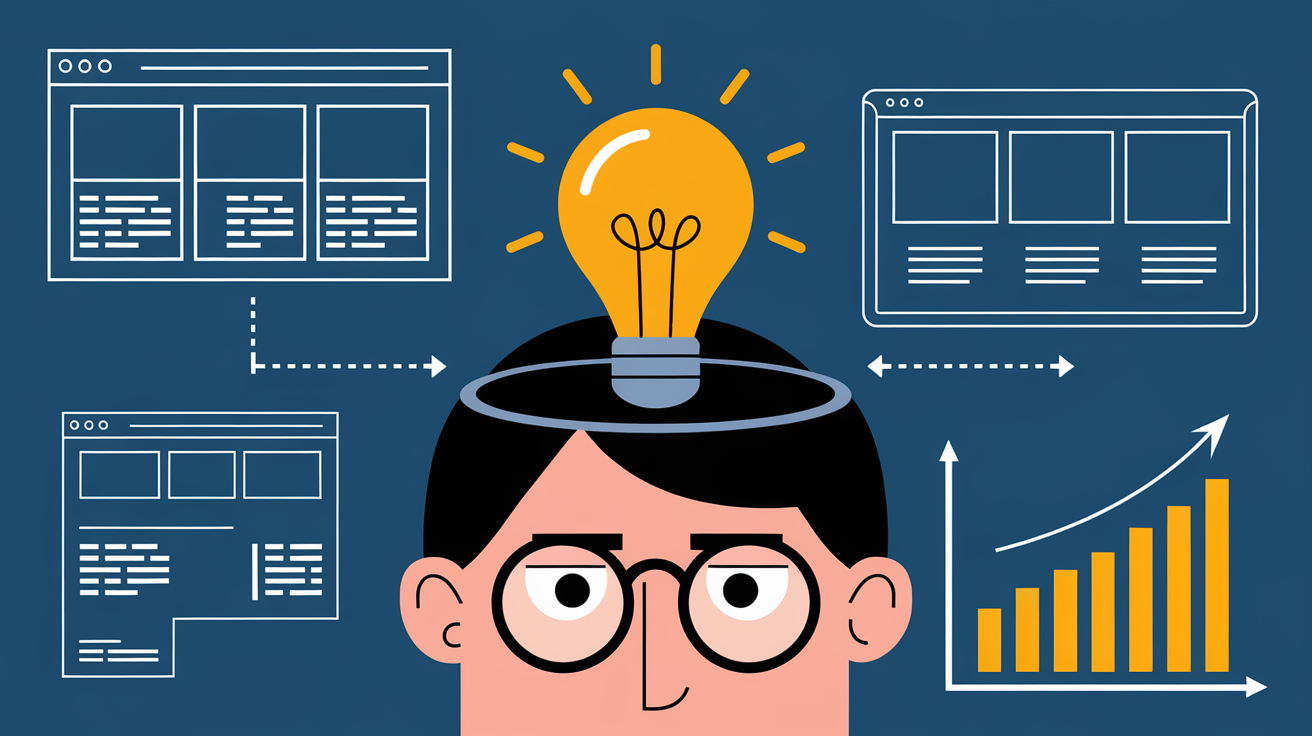The ROI of Technical SEO
Technical SEO might seem complex, but it delivers some of the highest ROI of any digital marketing strategy—often with results that compound over time.

Why Technical SEO Is Worth The Investment
You're working hard to create great content and build backlinks, but your website still isn't performing as well as you hoped. The frustrating reality is that even the best content strategy can fail if your site's technical foundation is weak.
Technical SEO might seem complex and expensive, but when implemented correctly, it delivers some of the highest ROI of any digital marketing strategy—often with results that compound over time.
In this comprehensive guide, I'll walk you through exactly why technical SEO matters for your bottom line, the specific elements that deliver the biggest impact, and how to prioritize your investments for maximum returns.
What Is Technical SEO And Why Does It Matter?
Technical SEO refers to the optimization of your website's infrastructure to help search engines effectively crawl, index, and render your pages. While content and links get most of the attention, the technical foundation is what allows your site to reach its full potential.
Think of technical SEO as your website's engine. No matter how beautiful your car's exterior (your content) or how much you promote it (your backlinks), if the engine isn't working properly, you won't get very far.
The Business Impact Is Significant
- A 1-second delay in page load speed reduces conversions by up to 7%
- Mobile-friendly websites generate nearly 2x the traffic of non-responsive sites
- Structured data can increase click-through rates by over 30%
- Sites with strong technical foundations typically rank for more keywords with less content
The Highest-Impact Technical SEO Investments
1. Site Speed Optimization
Site speed isn't just a ranking factor—it directly impacts conversions. According to Google, as page load time increases from 1 to 3 seconds, the probability of bounce increases by 32%.
Here's what delivers the biggest speed improvements:
- Image optimization and compression
- Efficient code minification
- Browser caching implementation
- Content Delivery Network (CDN) usage
- Server response time improvements
When I implemented these speed optimizations for ComparePower.com, we saw a 15% increase in organic traffic within two months, which translated to approximately $120,000 in additional annual revenue.
2. Mobile Experience Enhancement
With Google's mobile-first indexing, your site's mobile performance directly affects rankings across all devices.
Key mobile optimizations include:
- Responsive design implementation
- Mobile-specific speed improvements
- Touch-friendly navigation and buttons
- Readable font sizes without zooming
- Properly sized tap targets
After optimizing ProsperaHealthcare.com for mobile, their patient inquiry rate increased by 27%, resulting in a significant boost to their bottom line.
3. Structured Data Implementation
Structured data helps search engines understand your content more precisely while often generating rich snippets in search results.
The most valuable structured data types include:
- Local business information
- Product and pricing details
- Reviews and ratings
- FAQ content
- How-to instructions
Implementing structured data for a Texas healthcare provider resulted in a 40% increase in click-through rates from search results to their appointment pages.
4. Crawlability and Indexation Improvements
If search engines can't properly crawl and index your content, even the best on-page optimization won't help.
Key improvements include:
- XML sitemap optimization
- Robots.txt fine-tuning
- Strategic internal linking
- Fixing broken links and redirects
- Handling duplicate content issues
For Texas Legislative Advisors, resolving indexation issues resulted in 140% more indexed pages and a corresponding increase in organic visibility.
Measuring the ROI of Technical SEO
Unlike some digital marketing channels, technical SEO can be challenging to attribute directly. Here's how to effectively measure its impact:
Before and After Performance Metrics
- Organic traffic growth
- Conversions from organic search
- Page load speed improvements
- Crawl stats from Google Search Console
- Indexation rates
Opportunity Cost Analysis
- Calculate revenue lost from poor site performance
- Estimate conversion lifts based on industry benchmarks
- Compare technical SEO costs against paid traffic alternatives
Long-term Value Assessment
- Technical SEO improvements typically deliver returns for years
- Calculate the compounding value over 12-36 months
- Factor in reduced bounce rates and improved user signals
Common Technical SEO Implementation Challenges
Even when the ROI is clear, implementation often faces organizational obstacles:
Resource Constraints
- Development Resources: Technical changes often require developer time and prioritization against other tasks.
- Budget Justification: Technical SEO investments may compete with more immediately visible marketing activities.
- Expertise Gaps: Many organizations lack specialized technical SEO knowledge in-house.
Success Factors
The most successful implementations typically involve:
- Clear documentation of expected outcomes
- Prioritized roadmaps focused on highest-impact changes
- Phased implementation approaches
- Direct collaboration between SEO specialists and developers
Is Technical SEO Worth the Investment?
The data consistently shows that technical SEO delivers strong returns:
- Average ROI ranges from 5x to 12x investment
- Results typically begin within 2-3 months but continue compounding
- Technical foundations enable better performance from all other SEO activities
- Investments are largely "set it and forget it" rather than requiring ongoing spend
For businesses with existing traffic, even modest technical improvements can translate directly to increased conversions. For newer sites, strong technical foundations mean faster growth and higher performance ceilings.
Next Steps: Your Technical SEO Action Plan
- Conduct a comprehensive technical audit to identify critical issues
- Prioritize fixes based on impact and implementation difficulty
- Implement changes in phases, starting with the highest-ROI elements
- Track performance improvements to demonstrate value
- Reinvest gains into additional technical optimizations
The Bottom Line
Technical SEO may not be the most exciting part of your digital strategy, but it often delivers the most substantial and sustainable returns. As your competitors focus on content quantity and link building, a superior technical foundation can give you the edge that drives real business results.
Ready to transform your website's performance with technical SEO? Let's talk about how to build a foundation that delivers measurable ROI for your business.
Continue Reading

Don't Sweat the Small Stuff
A simple paperweight taught me to stop chasing noise, conserve energy, and win with calm—at work and in life.

Push vs. Pull Marketing for Startups
Liftout was a smart idea with a working product. But we weren’t willing to do the early work that doesn’t scale — and that’s what killed it.

What Content Gets Cited in AI Chatbots?
AI chatbots are creating a new traffic source for websites. Learn what makes content citation-worthy and how to optimize your content for AI visibility.
